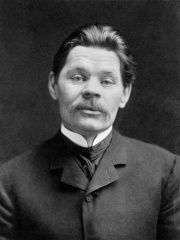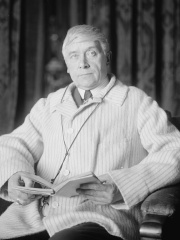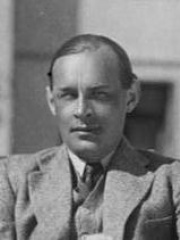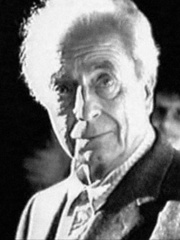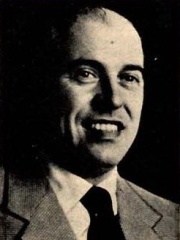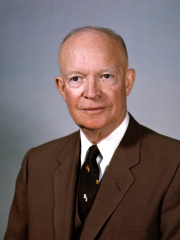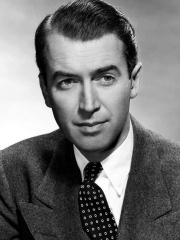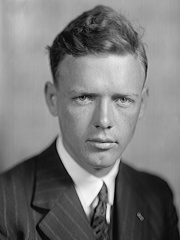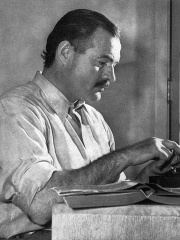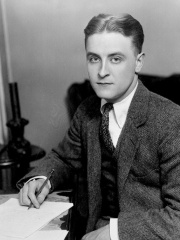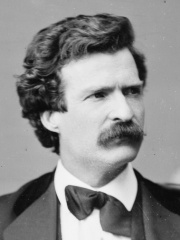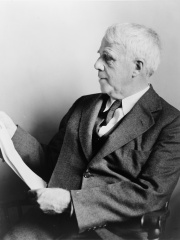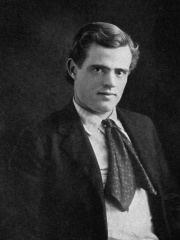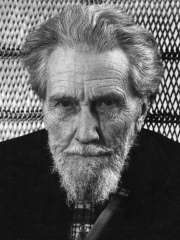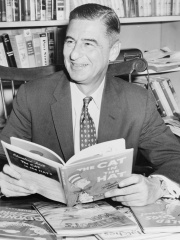WRITER
Kurt Vonnegut
1922 - 2007
 Kurt Vonnegut
Kurt Vonnegut
Kurt Vonnegut ( VON-ə-gət; November 11, 1922 – April 11, 2007) was an American author known for his satirical and darkly humorous novels. His published work includes fourteen novels, three short-story collections, five plays, and five nonfiction works over fifty years; further works have been published since his death. Born and raised in Indianapolis, Vonnegut attended Cornell University, but withdrew in January 1943 and enlisted in the U.S. Army. As part of his training, he studied mechanical engineering at the Carnegie Institute of Technology and the University of Tennessee. Read more on Wikipedia
His biography is available in 83 different languages on Wikipedia (up from 81 in 2024). Kurt Vonnegut is the 91st most popular writer (up from 436th in 2024), the 78th most popular biography from United States (up from 413th in 2019) and the 10th most popular American Writer.
Kurt Vonnegut is most famous for his novels Slaughterhouse-Five and Cat's Cradle.
Memorability Metrics
Page views of Kurt Vonnegut by language
Among WRITERS
Among writers, Kurt Vonnegut ranks 91 out of 7,302. Before him are Kālidāsa, Maxim Gorky, Du Fu, Pablo Neruda, George Bernard Shaw, and Maurice Maeterlinck. After him are Giorgio Vasari, Milan Kundera, Heinrich Heine, Louisa May Alcott, Erich Maria Remarque, and Ursula K. Le Guin.
Most Popular Writers in Wikipedia
Go to all RankingsKālidāsa
400 - 420
HPI: 82.51
Rank: 85
Maxim Gorky
1868 - 1936
HPI: 82.46
Rank: 86
Du Fu
712 - 770
HPI: 82.41
Rank: 87
Pablo Neruda
1904 - 1973
HPI: 82.29
Rank: 88
George Bernard Shaw
1856 - 1950
HPI: 82.20
Rank: 89
Maurice Maeterlinck
1862 - 1949
HPI: 82.17
Rank: 90
Kurt Vonnegut
1922 - 2007
HPI: 82.15
Rank: 91
Giorgio Vasari
1511 - 1574
HPI: 82.06
Rank: 92
Milan Kundera
1929 - 2023
HPI: 82.06
Rank: 93
Heinrich Heine
1797 - 1856
HPI: 81.96
Rank: 94
Louisa May Alcott
1832 - 1888
HPI: 81.95
Rank: 95
Erich Maria Remarque
1898 - 1970
HPI: 81.94
Rank: 96
Ursula K. Le Guin
1929 - 2018
HPI: 81.89
Rank: 97
Contemporaries
Among people born in 1922, Kurt Vonnegut ranks 1. After him are José Saramago, Yitzhak Rabin, Pier Paolo Pasolini, Christopher Lee, Judy Garland, Stan Lee, Hiroo Onoda, Norodom Sihanouk, Franjo Tuđman, Thomas Kuhn, and Boutros Boutros-Ghali. Among people deceased in 2007, Kurt Vonnegut ranks 4. Before him are Boris Yeltsin, Luciano Pavarotti, and Ingmar Bergman. After him are Michelangelo Antonioni, Mohammed Zahir Shah, Kurt Waldheim, Karlheinz Stockhausen, Ève Curie, Jean Baudrillard, Mstislav Rostropovich, and Carlo Ponti.
Others Born in 1922
Go to all RankingsKurt Vonnegut
WRITER
1922 - 2007
HPI: 82.15
Rank: 1
José Saramago
WRITER
1922 - 2010
HPI: 81.32
Rank: 2
Yitzhak Rabin
POLITICIAN
1922 - 1995
HPI: 80.27
Rank: 3
Pier Paolo Pasolini
FILM DIRECTOR
1922 - 1975
HPI: 79.68
Rank: 4
Christopher Lee
ACTOR
1922 - 2015
HPI: 79.50
Rank: 5
Judy Garland
ACTOR
1922 - 1969
HPI: 78.32
Rank: 6
Stan Lee
COMIC ARTIST
1922 - 2018
HPI: 78.26
Rank: 7
Hiroo Onoda
MILITARY PERSONNEL
1922 - 2014
HPI: 77.98
Rank: 8
Norodom Sihanouk
POLITICIAN
1922 - 2012
HPI: 77.77
Rank: 9
Franjo Tuđman
POLITICIAN
1922 - 1999
HPI: 77.61
Rank: 10
Thomas Kuhn
HISTORIAN
1922 - 1996
HPI: 76.91
Rank: 11
Boutros Boutros-Ghali
DIPLOMAT
1922 - 2016
HPI: 76.72
Rank: 12
Others Deceased in 2007
Go to all RankingsBoris Yeltsin
POLITICIAN
1931 - 2007
HPI: 84.88
Rank: 1
Luciano Pavarotti
SINGER
1935 - 2007
HPI: 83.23
Rank: 2
Ingmar Bergman
FILM DIRECTOR
1918 - 2007
HPI: 82.46
Rank: 3
Kurt Vonnegut
WRITER
1922 - 2007
HPI: 82.15
Rank: 4
Michelangelo Antonioni
FILM DIRECTOR
1912 - 2007
HPI: 76.78
Rank: 5
Mohammed Zahir Shah
POLITICIAN
1914 - 2007
HPI: 76.65
Rank: 6
Kurt Waldheim
POLITICIAN
1918 - 2007
HPI: 76.64
Rank: 7
Karlheinz Stockhausen
COMPOSER
1928 - 2007
HPI: 76.38
Rank: 8
Ève Curie
WRITER
1904 - 2007
HPI: 75.06
Rank: 9
Jean Baudrillard
PHILOSOPHER
1929 - 2007
HPI: 74.78
Rank: 10
Mstislav Rostropovich
MUSICIAN
1927 - 2007
HPI: 74.26
Rank: 11
Carlo Ponti
PRODUCER
1912 - 2007
HPI: 74.11
Rank: 12
In United States
Among people born in United States, Kurt Vonnegut ranks 78 out of 20,380. Before him are George H. W. Bush (1924), Henry Ford (1863), Dwight D. Eisenhower (1890), Danny DeVito (1944), James Stewart (1908), and Barbara Bush (1925). After him are Warren Buffett (1930), Louisa May Alcott (1832), Patrick Swayze (1952), Charles Lindbergh (1902), Ursula K. Le Guin (1929), and Helen Keller (1880).
Others born in United States
Go to all RankingsGeorge H. W. Bush
POLITICIAN
1924 - 2018
HPI: 82.46
Rank: 72
Henry Ford
INVENTOR
1863 - 1947
HPI: 82.33
Rank: 73
Dwight D. Eisenhower
POLITICIAN
1890 - 1969
HPI: 82.31
Rank: 74
Danny DeVito
ACTOR
1944 - Present
HPI: 82.24
Rank: 75
James Stewart
ACTOR
1908 - 1997
HPI: 82.24
Rank: 76
Barbara Bush
POLITICIAN
1925 - 2018
HPI: 82.18
Rank: 77
Kurt Vonnegut
WRITER
1922 - 2007
HPI: 82.15
Rank: 78
Warren Buffett
BUSINESSPERSON
1930 - Present
HPI: 81.98
Rank: 79
Louisa May Alcott
WRITER
1832 - 1888
HPI: 81.95
Rank: 80
Patrick Swayze
ACTOR
1952 - 2009
HPI: 81.93
Rank: 81
Charles Lindbergh
PILOT
1902 - 1974
HPI: 81.92
Rank: 82
Ursula K. Le Guin
WRITER
1929 - 2018
HPI: 81.89
Rank: 83
Helen Keller
SOCIAL ACTIVIST
1880 - 1968
HPI: 81.88
Rank: 84
Among WRITERS In United States
Among writers born in United States, Kurt Vonnegut ranks 10. Before him are Ernest Hemingway (1899), F. Scott Fitzgerald (1896), Mark Twain (1835), Robert Frost (1874), Toni Morrison (1931), and George R. R. Martin (1948). After him are Louisa May Alcott (1832), Ursula K. Le Guin (1929), Jack London (1876), Stephen King (1947), Ezra Pound (1885), and Dr. Seuss (1904).
Ernest Hemingway
1899 - 1961
HPI: 84.99
Rank: 4
F. Scott Fitzgerald
1896 - 1940
HPI: 84.65
Rank: 5
Mark Twain
1835 - 1910
HPI: 83.94
Rank: 6
Robert Frost
1874 - 1963
HPI: 83.18
Rank: 7
Toni Morrison
1931 - 2019
HPI: 82.91
Rank: 8
George R. R. Martin
1948 - Present
HPI: 82.87
Rank: 9
Kurt Vonnegut
1922 - 2007
HPI: 82.15
Rank: 10
Louisa May Alcott
1832 - 1888
HPI: 81.95
Rank: 11
Ursula K. Le Guin
1929 - 2018
HPI: 81.89
Rank: 12
Jack London
1876 - 1916
HPI: 81.73
Rank: 13
Stephen King
1947 - Present
HPI: 81.49
Rank: 14
Ezra Pound
1885 - 1972
HPI: 80.47
Rank: 15
Dr. Seuss
1904 - 1991
HPI: 79.94
Rank: 16


